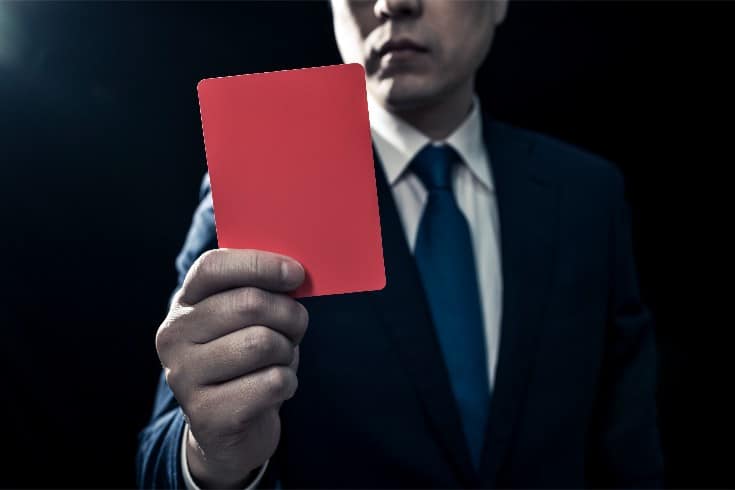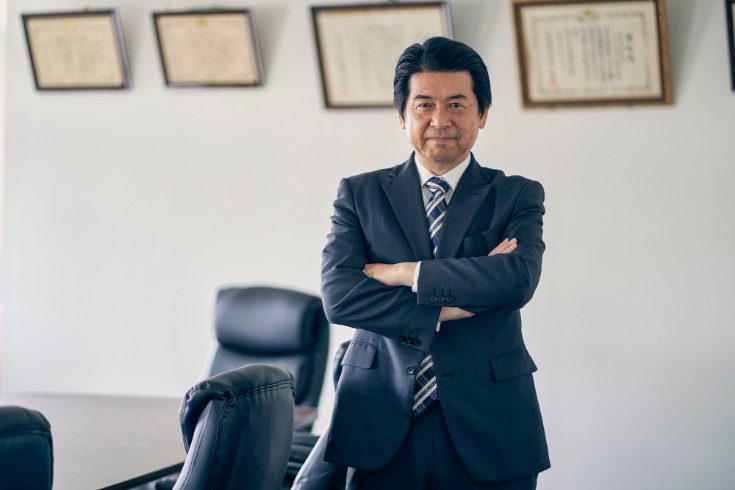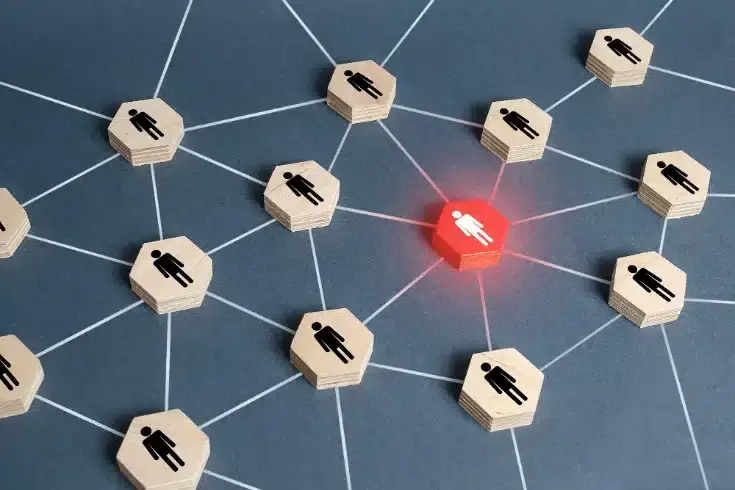What is a Lawyer's Duty of Confidentiality? Explaining the Scope of Exceptions and Penalties

Lawyers are bound by a duty of “confidentiality”. There may be times when clients need to disclose their secrets or private information to their lawyers. However, this duty of confidentiality allows clients to consult with their lawyers with peace of mind.
So, what exactly does this “duty of confidentiality” entail, and how far does its scope extend? Also, what kind of penalties are imposed if this duty of confidentiality is breached?
In this article, we will also explain the scope of exceptions to the “duty of confidentiality” and the penalties for violations.
Attorney-Client Confidentiality

Attorneys are legally obligated to keep any secrets they learn in the course of their work confidential, not only while they are practicing, but also for the rest of their lives, even after they have retired or ceased to be an attorney.
Japanese Attorney Act, Article 23
An attorney or a person who was an attorney has the right and obligation to keep secrets known in the course of his/her duties. However, this does not apply if there are separate provisions in the law.
Similarly, there are also provisions in the internal rules set by the Japan Federation of Bar Associations.
Basic Rules on the Duties of Attorneys, Article 23
An attorney must not disclose or use secrets about a client known in the course of his/her duties to others without a legitimate reason.
It is precisely because attorneys have a duty of confidentiality that clients can confidently entrust them with their problems. In turn, attorneys can make accurate judgments by obtaining as much accurate information as possible from their clients.
This is an essential premise in any cases.
What is a “Client” in the Context of a Lawyer’s Duties?

Article 23 of the Japanese Attorney-at-Law’s Basic Duties Regulation refers to “clients,” but this does not only apply to clients who have actually entered into a mandate contract.
This term broadly includes those who have sought legal advice (including free consultations) but have not reached the point of engagement, as well as former clients whose cases have already been resolved.
Furthermore, in the case of corporate counsel and in-house lawyers, the organization (company) that employs the lawyer is also included as a “client”.
Confidentiality Obligations Arise Even in Free Consultations
What is particularly important is the provision that “those who have sought legal advice (including free consultations) but have not reached the point of engagement” are also included as “clients,” and the information they provide is subject to confidentiality obligations.
In other words, in normal business transactions, information heard in consultations and the like is not subject to confidentiality obligations unless a so-called “confidentiality agreement” is concluded. However, in the case of lawyers, information heard under the relationship of “lawyer and client” or “lawyer and consultant” is subject to confidentiality obligations, even without a confidentiality agreement.
However, if information heard unilaterally from someone with whom the lawyer has no prior acquaintance, such as the content of the first email received via the inquiry page of a law firm’s website, were to be subject to confidentiality obligations, it would cause significant inconvenience to the lawyer.
For example, there is a possibility that an “inquiry” related to the case in question may come from Mr. B, when the lawyer has already accepted a request from Mr. A and is about to sue Mr. B.
Therefore, on many lawyer-related websites, including this one, it is a common practice to:
- Explicitly confirm that the content of the initial inquiry email is not subject to confidentiality obligations.
- If it is judged that it would be better to hear the specific story under the confidentiality obligation, state this in the reply to the initial inquiry email.
In relation to the provisions of the Attorney-at-Law Act, at the stage of the initial email, the relationship of “lawyer and consultant” has not yet been established.
Relationship with Other Lawyers in the Same Law Firm
Furthermore, in relation to the law firm to which they belong, “A lawyer belonging to the firm must not disclose or use secrets about other lawyers’ clients that they learned in the course of their duties without a legitimate reason. This applies even after they are no longer a lawyer at the joint law firm” (Article 56 of the Attorney-at-Law’s Basic Duties Regulation).
Therefore, lawyers in the same law firm as the lawyer who received the request also bear the same confidentiality obligations as the lawyer who received the request.
Scope of a Lawyer’s Duty of Confidentiality

What is “Secrets Acquired in the Course of Duty”
Lawyers have a duty to protect important information (secrets) from their clients.
The term “acquired in the course of duty,” found in both Article 23 of the Japanese Attorney Act and Article 23 of the Basic Rules of Attorney Duties, refers to information that a lawyer has acquired through conversations or documents in the course of performing their duties as a lawyer.
This includes not only information learned in the course of handling a case, but also secrets of others that have been confided based on the trust in the lawyer.
However, secrets learned in a private setting outside of the lawyer’s duties are not included.
Although the confidentiality obligation is essential as it guarantees clients’ privacy and safety, if the scope is defined too broadly, there may be inconveniences, such as the example of the aforementioned inquiry email.
Therefore, many law firms, including ours, operate in the following way:
- Phone calls or emails of inquiry are not initially considered to be based on the “trust in a lawyer,” and it is explicitly stated that they are not subject to the duty of confidentiality.
- When the inquiry email transitions to the level of “legal consultation,” it is explained that “from now on, what I hear will be kept confidential as subject to the duty of confidentiality.”
It is believed that this is the common practice.
As for the term “secret,” there is a debate in academia, but it is generally considered to include both matters that a layperson would want to keep confidential (objective theory) and facts that are not generally known and that the person in question particularly wants to keep confidential (subjective theory).
“Secrets of Persons Other Than the Client” in the Attorney Act
Article 23 of the Basic Rules of Attorney Duties stipulates “secrets acquired in the course of duty about the client,” while Article 23 of the Attorney Act stipulates only “secrets acquired in the course of duty.”
The Attorney Act does not include the phrase “about the client,” and the “secrets” in the Attorney Act are not limited to the secrets of the client.
Therefore, the question arises as to whether the duty of confidentiality under Article 23 of the Attorney Act also applies to secrets of persons other than the client, or even to secrets of third parties, including the opposing party in a case.
On this point, there are three views:
- The view that it is limited to “secrets of the client” (limited theory)
- The view that “secrets of the opposing party of the client” are also subject to the duty of confidentiality (unlimited theory)
- The view that “secrets of persons other than the client who are equivalent to the client” are included in the scope of the duty of confidentiality (compromise theory)
In case law, although it is a judgment on the crime of disclosure of secrets against a doctor, it is indicated in the judgment that
“The term ‘person’s secret’ should be understood to include not only the secrets of the person who is the subject of the appraisal, but also the secrets of persons other than the subject of the appraisal that were learned in the course of conducting the appraisal.”
Supreme Court decision of February 13, 2012 (Criminal Collection Vol. 66, No. 4, p. 405)
It gives the impression that the Supreme Court has been leaning towards the unlimited theory in recent years.
However, no clear discussion has been made, and it is necessary to pay attention to future trends.
Right of Attorneys to Refuse Testimony

In civil trials, attorneys can refuse to testify about facts they learned in the course of their duties that should be kept confidential (Japanese Civil Procedure Law, Article 197, Paragraph 1, Item 2). They can also refuse to submit documents that contain information they are not exempt from keeping confidential (Japanese Civil Procedure Law, Article 220, Paragraph 4, Item Ha).
In criminal trials, attorneys can refuse item seizures of items related to someone else’s secrets that they hold or possess due to their professional duties (Japanese Criminal Procedure Law, Article 105 & Article 222, Paragraph 1, first half). They can also refuse to testify about facts related to someone else’s secrets that they learned due to their professional duties (Japanese Criminal Procedure Law, Article 149).
Even if a judge issues a wiretap warrant for a phone call between a client and an attorney (Japanese Wiretap Law, Article 3, Paragraph 1), investigative agencies cannot wiretap the call if it is deemed to be related to their professional duties (Japanese Wiretap Law, Article 15).
Even when attorneys are summoned as witnesses by either house of the Diet to testify or submit documents for the examination of bills or other investigations related to national politics (refer to Article 62 of the Japanese Constitution), they can refuse to swear an oath, testify, or submit documents about facts related to someone else’s secrets that they learned due to their professional duties (Japanese Diet Testimony Law, Article 4, Paragraph 2, main clause).
As stated in Article 23 of the Japanese Attorney Law, attorneys have a strong right to keep secrets they learn in the course of their duties.
Scope of Exclusion from Confidentiality Obligations

When there are specific provisions in the law
The phrase “However, this does not apply if there are specific provisions in the law” in Article 23 of the Japanese Attorney Act refers to the following cases:
- In civil cases, when the obligation to remain silent is waived (Article 197, Paragraph 2 of the Japanese Civil Procedure Law). For example, when the client has given consent.
- In criminal cases, when the person has given consent or when the refusal to testify is deemed an abuse of the right to do so solely for the benefit of the defendant (Article 149, Proviso of the Japanese Criminal Procedure Law).
When there is a legitimate reason
Article 23 of the Basic Rules of Attorney Duties states “without a legitimate reason,” but according to the Japan Federation of Bar Associations’ “Commentary on the Basic Rules of Attorney Duties, 2nd Edition” (March 2012 (Heisei 24)), “legitimate reasons” are as follows:
- When the client has given consent.
- When it is necessary for the attorney’s self-defense.
For example, when the attorney himself becomes a party to a civil or criminal dispute related to the case in question, or when it is essential for his own argument and proof in disciplinary proceedings or dispute resolution proceedings. - To protect the attorney’s own reputation and to clear up serious misunderstandings, to the extent necessary, or when the attorney himself is suspected of crimes such as obstruction of compulsory execution, concealment of evidence, forgery of documents, etc., he must clear himself of these suspicions. In such cases, the necessity of testimony and consent to seizure may take precedence over the obligation to refuse, and in such cases, the disclosure of the client’s secrets for self-defense is permitted.
When a Lawyer Breaches Confidentiality

There are no direct penalties specified for violations of Article 23 of the Japanese Attorney Act. However, breaching confidentiality can lead to civil penalties, criminal penalties, and disciplinary actions from the bar association.
Civil Penalties
According to Article 644 of the Japanese Civil Code, a lawyer has a duty to “perform the entrusted affairs with the care of a good manager in accordance with the purpose of the mandate.” It is believed that this gives rise to a civil duty of confidentiality.
Therefore, if a lawyer breaches confidentiality and infringes upon the legally protected interests of the client, the lawyer is obligated to pay damages.
Furthermore, if a special confidentiality agreement was made with the client in advance, the lawyer will be subject to penalties based on the terms of that agreement.
Criminal Penalties
Article 134, Paragraph 1 of the Japanese Penal Code states, “When a physician, pharmacist, drug dealer, midwife, lawyer, defense counsel, notary public, or anyone who has held these positions, discloses a person’s secret that they learned in the course of their duties without a legitimate reason, they shall be punished by imprisonment for up to six months or a fine of up to 100,000 yen.” This applies to lawyers as a crime of disclosing secrets.
Disciplinary Actions by the Bar Association
Article 56, Paragraph 1 of the Japanese Attorney Act states, “When a lawyer or a law firm violates this law or the rules of the bar association to which they belong, or the Japan Federation of Bar Associations, and harms the order or credibility of the bar association to which they belong, or commits misconduct that should lose their dignity, regardless of whether it is within or outside their duties, they shall be disciplined.”
A lawyer’s breach of confidentiality is likely to fall under this category, and they may face disciplinary actions from the bar association to which they belong.
Article 57 of the Japanese Attorney Act stipulates that there are four types of disciplinary actions: “admonition,” “suspension of business for up to two years,” “order to leave the association,” and “expulsion.”
If a lawyer receives an order to leave the association, they will no longer be able to practice as a lawyer. The same applies to expulsion, but in addition, they will not be allowed to regain their lawyer’s qualification for three years.
Summary: The Confidentiality Obligation of Lawyers
As such, if a lawyer violates the confidentiality obligation, they face severe penalties. The confidentiality obligation is an extremely important element that forms the foundation of the trust relationship between a lawyer and their client.
Many lawyers strictly adhere to the confidentiality obligation in their work. Please feel free to consult with a lawyer.
Category: General Corporate
Tag: General CorporateIPO





















